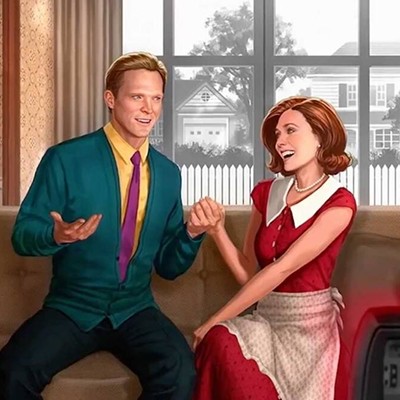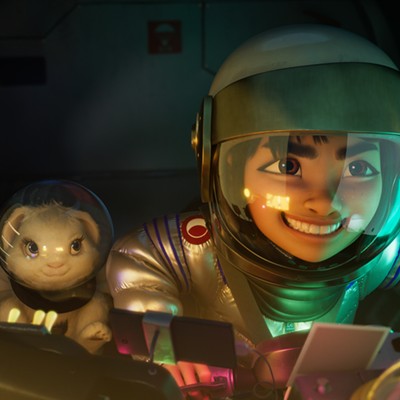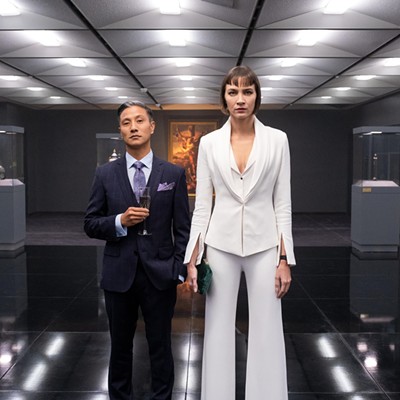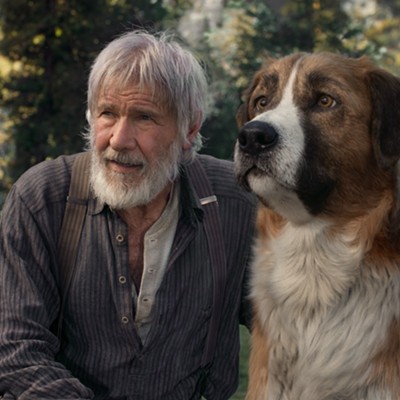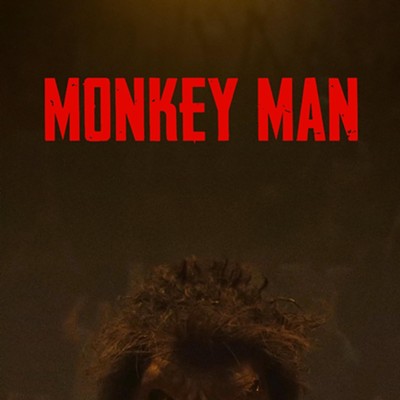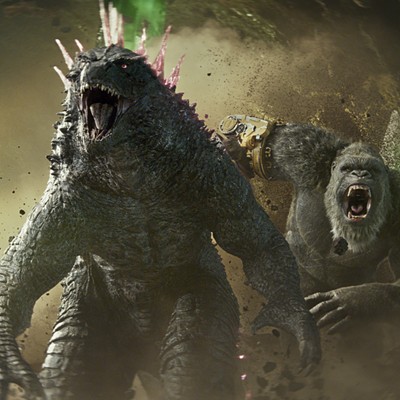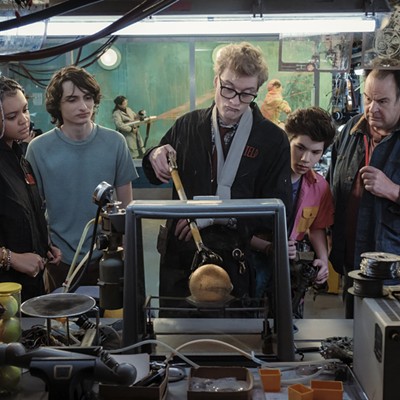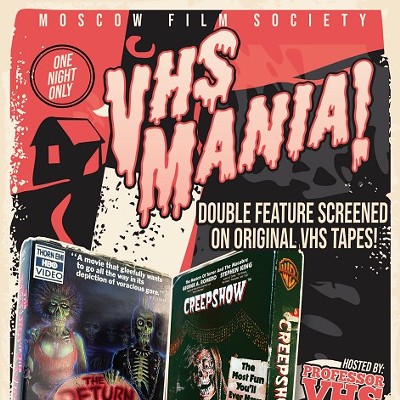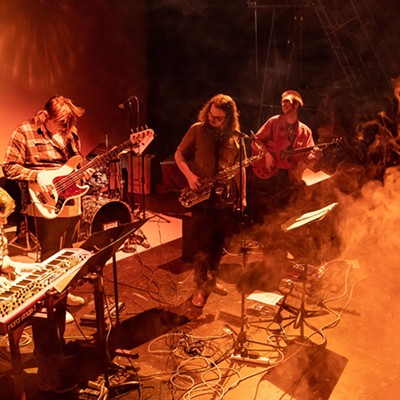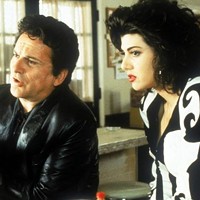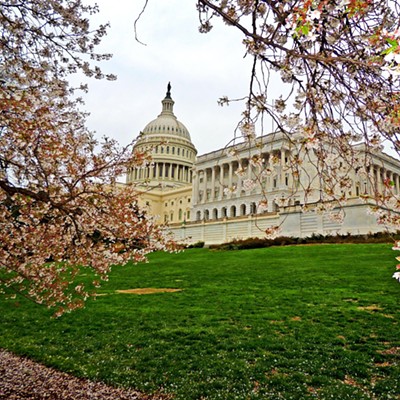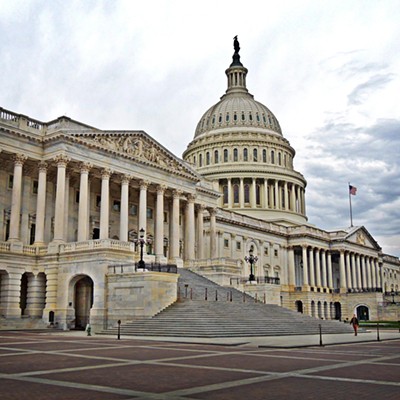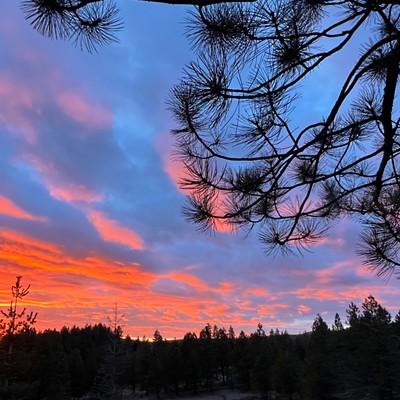
Chadwick Boseman is Jackie Robinson, (right) and Harrison Ford as Branch Rickey are shown in a scene from "42."
Movie Review by Roger Moore, of McClatchy Newspapers
Earnest, righteous, historically accurate and often entertaining, writer-director Brian Helgeland’s “42” is pretty much all you could hope for in a Jackie Robinson film biography.
Minus the excitement, which given how well-known Robinson’s story is to baseball fans, is no cardinal sin. And the cast is more adequate than thrilling.
It’s the sort of story that you find yourself hoping they don’t screw up — that the baseball will be convincing, that the racism isn’t watered down, that the actor playing Jackie (Chadwick Boseman) comes off as a human being, not an icon. And in those regards, “42” scores.
A brief history lesson — the narrated-over-newsreel footage context of the end of World War II — is followed by a much longer one, as we see Robinson selected to integrate baseball by the cagey old Brooklyn Dodgers general manager and president, Branch Rickey.
It’s shocking to see Harrison Ford take on a performance this complex — a voice, a pose and a whole demeanor, doing justice to a religious man whose spoken reasons for integrating America’s pastime — “Dollars aren’t black or white. They’re GREEN” — isn’t the whole truth and nothing but the truth.
Rickey hunts high and low for a black ballplayer of talent, modesty and forbearance. He needs a star who can take a lot of racist abuse from fans, players, umpires and others. Robinson, a four-sport athlete at UCLA and star of the Kansas City Monarchs, fit the bill.
Helgeland, an Oscar-winning screenwriter (“L.A. Confidential”) and skilled storyteller (“Mystic River”), provides his cleverest touches in the ways he makes Robinson’s story resonate today. The California native had bristled at Southern segregation while in the Army. Helgeland plays up the racial threats Robinson received in spring training at Sanford, Fla. (where teen Trayvon Martin recently met his death).
He shows us a grand arc among the players, many of whom signed a petition to keep Robinson off the Dodgers. They witness the racism of opponents, fans and others and blush in shame.
The writer-director gives his star a lot of quiet moments, but Boseman, the center of it all, makes for a rather stoic and bland Robinson, which was what Rickey was shooting for but which doesn’t do the movie any favors in the spark department.
The rest of the cast of “42” is no slam-dunk of A-listers. Hamish Linklater (TV’s “The New Adventures of Old Christine”) isn’t built like an athlete of this or any other era. John C. McGinley may attempt the accent and homey slang of sportscaster Red Barber, but seems totally wrong. Christopher Meloni suggests little of what earned manager Leo Durocher the nickname “Leo the Lip.” And Ford seems nothing like the real Rickey, even if he wins us over with gruff charm.
But Alan Tudyk gives a spittle-spewing racist vent to Phillies manager Ben Chapman, and Lucas Black is absolutely perfect as the drawling star Dodgers shortstop Pee Wee Reese, whose role in that season that changed America — 1947 — could easily have been forgotten, but which Helgeland movingly remembers.
It’s the setting, the tone and the sentiment that “42” masters — the comically primitive attitudes of some of the white majority, the black fans and children inspired by Robinson’s odyssey, the barriers that today’s youth might be shocked to know ever existed.
And it’s that affection for the game and the history that make “42” a number not just worthy of retiring from every major league roster, but worth experiencing as a movie.
"42" is rated PG-13 for thematic elements including language, and has a running two hours and eight minutes.

